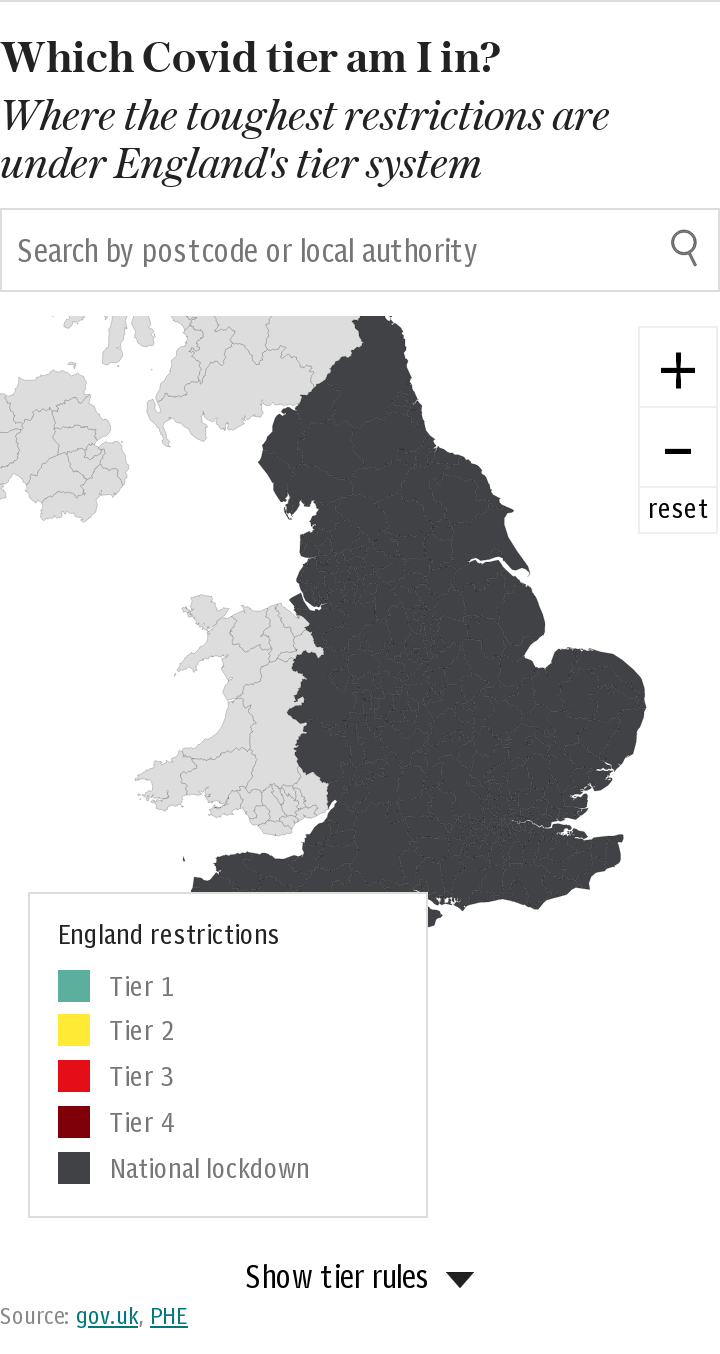Rural areas given fresh hope of being 'decoupled' from neighbouring covid-19 hotspots

Rural parts of England have been given fresh hope of being “decoupled” from covid-19 hotspots under the highest tier restrictions after Matt Hancock told Tory MPs their area would be assessed on its “own merits.”
In a letter to former ministers Dr Liam Fox and John Penrose, whose constituencies are in North Somerset, Mr Hancock signalled the local authority would be assessed independently of nearby Bristol.
It came as Boris Johnson told a Downing Street press conference that he understood it was "incredibly frustrating" that some areas that had been "attracted into a higher tier by proximity to some other neighbourhood that has a higher incidence of infection."
He added that when the tiers are reviewed on December 16, ministers would ensure that decisions were "as local" and "sensitive as we can possibly be to local achievement and local incidence of the disease."
Both Bristol and North Somerset have been placed into tier three, with the city recording 197 cases per 100,000 people over the last week, compared to 179.5 cases in the latter.
However, according to the latest figures, North Somerset's rates are down from 203.7 cases the week beforehand.
Responding to calls for North Somerset to be placed in tier two, Mr Hancock told Dr Fox and Mr Penrose: “In these reviews, I can assure you that we will look at North Somerset on its own merits, based on the five criteria we set out in the Winter Plan.
“I very much hope that North Somerset’s case rates continue to improve, and such progress will of course be factored into these decisions in each of the formal reviews.”

It follows reports that MPs in Leicestershire have been told that low-infection areas could be split from the city of Leicester, which has a much higher incidence of the virus.
Meanwhile, in Kent, seven Tory MPs are urging Mr Hancock to decouple their areas from the north of the country, which is recording some of the highest infection rates in the country.
Speaking to The Telegraph on Wednesday, a Kent MP said of the talks: “It’s in the air. This idea - this push we have made - has had some effect. Matt is trying to be as helpful as possible, he understands the pressures here.”
However, others have suggested that any decoupling is likely to be limited to large local authority areas, amid fears that splitting smaller ones could reignite calls for London to be divided on a borough-by-borough basis.
While senior London Tories have urged Mr Hancock to ditch the city-wide approach, ministers believe more localised tiers are impractical due to public transport networks and large numbers of commuters moving across the capital on a daily basis.
Speaking to reporters, the Prime Minister’s spokesman said: “There will be a review point on December 16.
"At that point we will have a fuller picture of the national restrictions and we will review every local authority area and region again by the five indicators that we’ve published.”


